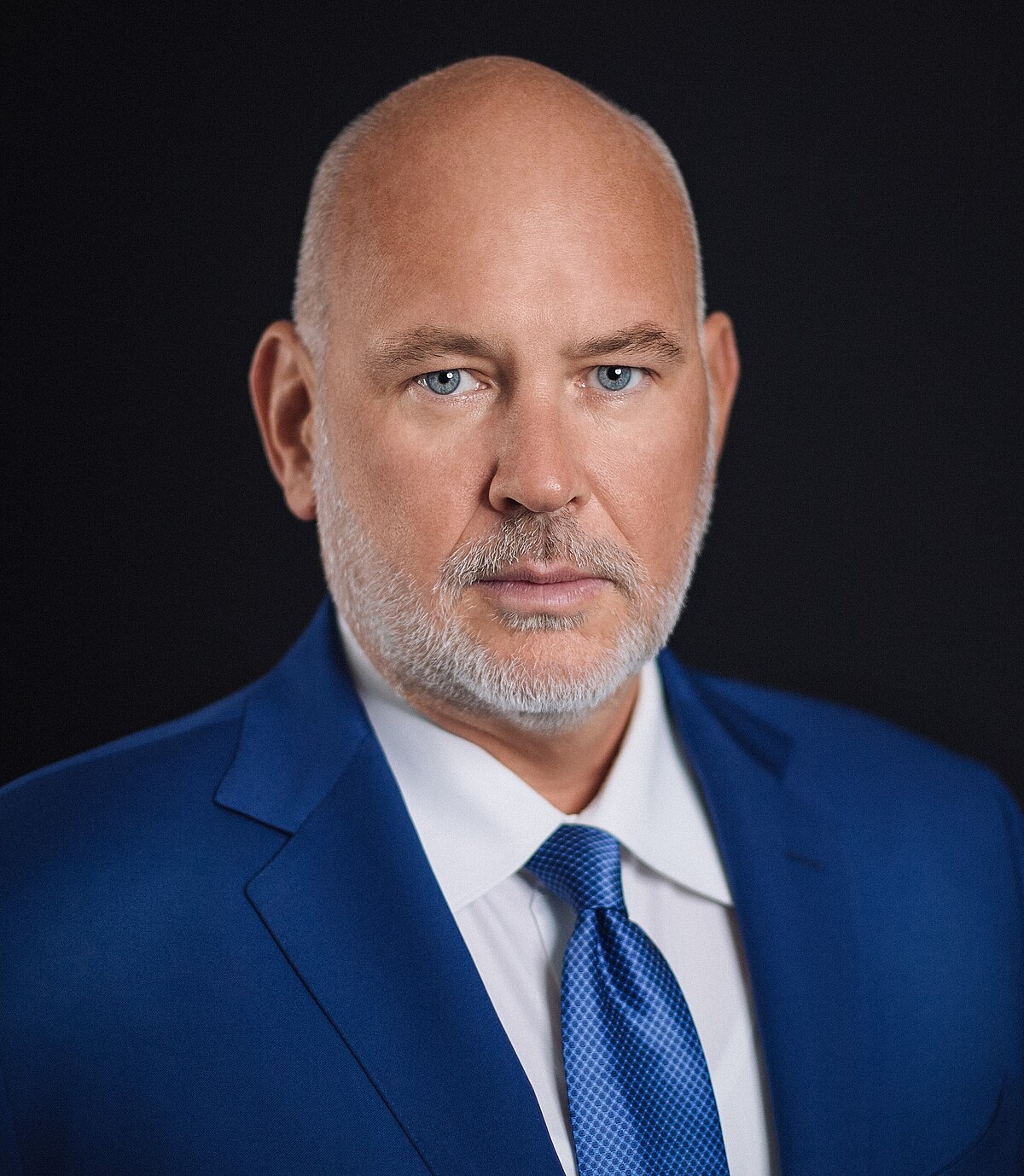Three New Deals: Why the Nazis and Fascists Loved FDR
Critics of Roosevelt's New Deal often likened it to fascism. This was recognized to be true during the 1930s, by the New Deal's supporters as well as its

mises.org
". . . Mussolini, who did not allow his work as dictator to interrupt his prolific journalism, wrote a glowing review of Roosevelt's Looking Forward. He found "reminiscent of fascism … the principle that the state no longer leaves the economy to its own devices"; and, in another review, this time of Henry Wallace's New Frontiers, Il Duce found the Secretary of Agriculture's program similar to his own corporativism (pp. 23-24).
Roosevelt never had much use for Hitler, but Mussolini was another matter. "'I don't mind telling you in confidence,' FDR remarked to a White House correspondent, 'that I am keeping in fairly close touch with that admirable Italian gentleman'" (p. 31). Rexford Tugwell, a leading adviser to the president, had difficulty containing his enthusiasm for Mussolini's program to modernize Italy: "It's the cleanest … most efficiently operating piece of social machinery I've ever seen. It makes me envious" (p. 32, quoting Tugwell).
Why did these contemporaries sees an affinity between Roosevelt and the two leading European dictators, while most people today view them as polar opposites? People read history backwards: they project the fierce antagonisms of World War II, when America battled the Axis, to an earlier period. At the time, what impressed many observers, including as we have seen the principal actors themselves, was a new style of leadership common to America, Germany, and Italy.
Once more we must avoid a common misconception. Because of the ruthless crimes of Hitler and his Italian ally, it is mistakenly assumed that the dictators were for the most part hated and feared by the people they ruled. Quite the contrary, they were in those pre-war years the objects of considerable adulation. A leader who embodied the spirit of the people had superseded the old bureaucratic apparatus of government.
"Three New Deals: Why the Nazis and Fascists Loved FDR" is an article by David Gordon on the Mises Institute website. The article reviews a book by Wolfgang Schivelbusch, "Three New Deals: Reflections on Roosevelt's America, Mussolini's Italy, and Hitler's Germany, 1933–1939." The central argument of the book is that the New Deal policies implemented by President Franklin D. Roosevelt in the United States during the 1930s shared similarities with the economic policies of fascist and Nazi regimes in Italy and Germany.
Critique:
- Provocative title: The title of the article is attention-grabbing and provocative, which may attract readers interested in the topic. However, it may also be misleading, as the book itself does not argue that FDR was a fascist or Nazi, but rather that there were certain policy similarities between the New Deal and fascist/Nazi economic programs.
- Lack of context: The article does not provide sufficient historical context about the political, social, and economic conditions in the United States, Italy, and Germany during the 1930s. Understanding these conditions is essential for readers to appreciate the similarities and differences between the policies implemented in these countries.
- Limited exploration of differences: While the article highlights the similarities between the New Deal and fascist/Nazi economic policies, it does not delve deeply into the differences between them. For example, it could have mentioned the distinctly different political systems and the varying degrees of government control over the economy in these countries.
- Lack of counterarguments: The article presents the author's perspective without offering counterarguments or exploring other scholarly opinions on the subject. Providing a more balanced view by addressing potential criticisms or presenting alternative interpretations would strengthen the article's credibility.
- Limited analysis: The article primarily summarizes the book's main arguments without offering in-depth analysis or critique. Expanding on the implications of the book's thesis or discussing its relevance to current political and economic debates would enhance the article's value to readers.
Overall, "Three New Deals: Why the Nazis and Fascists Loved FDR" is an intriguing article that introduces readers to a provocative thesis. However, it could benefit from providing more historical context, exploring differences between the policies, addressing counterarguments, and offering more analysis to engage readers and encourage critical thinking about the subject.
What you are, in essence, doing, is a pseudo debate trick, you are trying to get the article to be the final word on FDR, which, on any scholarly level, is absurd. If you are really interested in exploring the subject with an open mind, you'd read a lot more than this. But, if all you are interested in is scouring the universe for any morsel that aligns with a certain political agenda, and dish it up on this forum in an attempt to score political points, you will do precisely as you are doing. But, that being said, since I do it, myself, I won't knock you for it. At least you are presenting an argument, something that I can sink my teeth into, and that's all I ask.
Now, let's see what else you have:
FDR Praised Mussolini And Loved Fascism
History is brandished like an AR-15 by the American left when it appears to fit their narrow worldview, but shunned when it turns out to be less favorable.

dailycaller.com
Daily Caller is not a reliable source. It's extremely biased to the right, engages in loaded phases, weasel words, politically charged rhetoric designed to cater to the hard right, and on that count, is a questionable source.
But, okay, despite that fact, I will look upon the article with the soft scholar's eye, and though I could smash Dinesh D'Souza with an intellectual Hammer (his '2000 Mules documentary has been debunked by numerous sources), I'll go soft on him in my critique:
The article "FDR Praised Mussolini And Loved Fascism" published by The Daily Caller presents an argument that President Franklin D. Roosevelt was influenced by Italian fascist leader Benito Mussolini and his economic policies. The article uses quotes and historical context to establish its point. However, there are certain aspects of the article that could be improved:
- Sensationalist title: The title of the article is sensationalist, implying that FDR was a supporter of fascism. This could potentially create a biased perception of the article's content even before readers engage with it. A more objective title would better serve the article's credibility.
- Lack of context: While the article provides some historical context, it does not provide enough information about the broader political, social, and economic conditions of the era. This would be important for readers to understand the extent to which FDR's admiration for Mussolini's economic policies was a product of the time and how these ideas influenced the development of the New Deal.
- Limited exploration of differences: The article emphasizes similarities between FDR's New Deal and Mussolini's fascist policies but does not adequately explore the differences between the two. Highlighting the distinctions between FDR's democratic principles and Mussolini's totalitarian regime would provide a more balanced and informative analysis.
- Lack of counterarguments: The article presents a one-sided argument without addressing potential criticisms or alternative interpretations. Providing counterarguments or discussing differing scholarly opinions on the subject would strengthen the article's credibility and encourage readers to critically engage with the content.
- Reliance on controversial sources: The article cites controversial author and filmmaker Dinesh D'Souza as a primary source. While D'Souza's work may provide some interesting insights, it is important to recognize that his views are often considered controversial and biased. Using additional, more objective sources would enhance the article's credibility.
In summary, the article presents an intriguing argument regarding FDR's admiration for Mussolini and the influence of fascism on the New Deal. However, the sensationalist title, lack of context, limited exploration of differences, lack of counterarguments, and reliance on controversial sources detract from its credibility and objectivity. Improving these aspects would create a more balanced and informative article for readers.
". . . Even Joseph P. Kennedy and Prescott Bush were waist-deep in cash derived from shaking the bloody hand of Hitler, a fact these self-appointed ruling families continue to whisk away from public view at crucial moments of political determination.
FDR and his foremost cheerleaders at the time specifically espoused open support for the efficiency of Mussolini and Hitler, and welcomed fascism (minus the war) at home.
Roosevelt himself once called Mussolini “admirable,” adding that he was “deeply impressed by what he has accomplished.” Mussolini returned the compliment with adulatory praise, writing of Roosevelt’s many reforms, “Reminiscent of Fascism is the principle that the state no longer leaves the economy to its own devices … Without question, the mood accompanying this sea change resembles that of Fascism.”
Leftists from academia, the media, and Roosevelt’s own administration were among those rallying around a brownshirt pipedream.
FDR adviser Rexford Guy Tugwell said of Italian fascism: “It’s the cleanest, neatest, most efficiently operating piece of social machinery I’ve ever seen. It makes me envious,” adding that, “I find Italy doing many of the things which seem to me necessary … Mussolini certainly has the same people opposed to him as FDR has.”
For most of us, who have by now, gotten a feel for your posts, we are not at all surprised by your doe-eyed love of FDR, nor your weak minded succumbing to the seductions of a Lincoln Project statist/fascist, shilling for the false hope of;
No, not really. As a liberal, they resonate with me. And the consensus of FDR is that he is a great President.

en.wikipedia.org
I love the never ending ironies that this forum produces for our entertainment. . . .
Dirigisme, the opposite of Laissez-Faire, in other words, the polarity of the left and right spectrum, I've addressed in detail in my OP on the subject:
There's a pendulum in politics. Swing too far to the left, it rebounds, and swings too far to the right. and vice versa, in a never ending going from one extreme to the other, and back again only to repeat. But where does the pendulum rest? Well, an actual pendulum, it rests upon arrival at...
www.usmessageboard.com
Laisse-Faire and neoliberalism have a lot in common
My view is that neoliberalism is the big cause of the rich/poor gap, which was accelerated under Reagan and that ship hasn't been fully reversed yet, despite Obama and Biden, who helped a little, but without a filibuster proof senate and control of the house, Dems can turn the neoliberal ship...
www.usmessageboard.com

